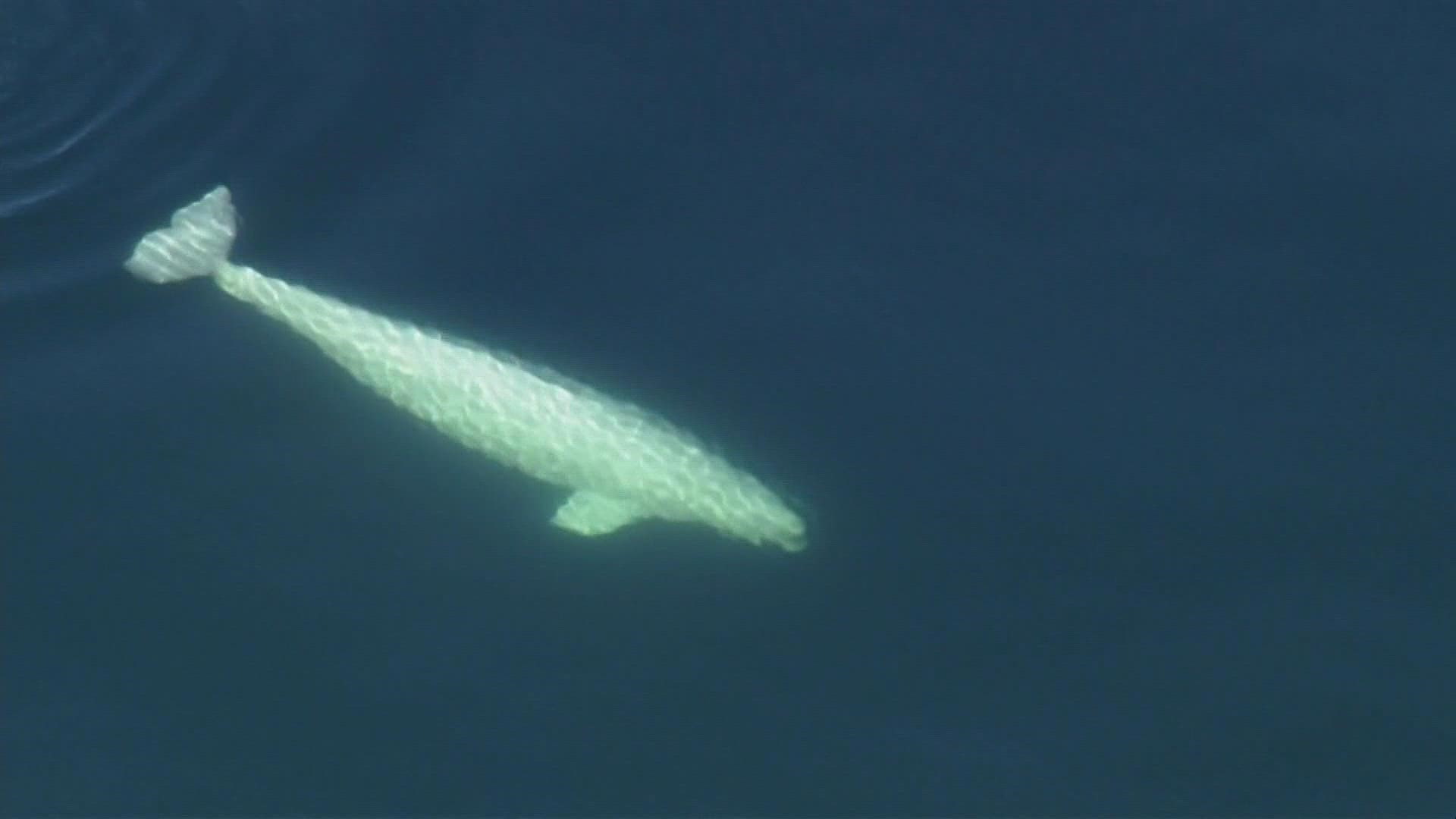Editor's note: The above video about the NOAA attempting to track the whale previously aired on Oct. 7, 2021.
SEATTLE - The beluga whale seen in Puget Sound earlier this month is likely from the Beaufort Sea, part of the Arctic Ocean north of Alaska, according to the National Oceanic and Atmospheric Administration (NOAA).
The beluga whale was reported for the first time in Puget Sound the week of Oct. 3. The only previously documented sighting of a beluga whale in Puget Sound came in 1940 near Point Defiance.
NOAA scientists were able to pinpoint the whale's origin by analyzing genetic material collected from the whale. The material, known as "environmental DNA," or eDNA, comes from skin, fecal, or other cellular debris found in the environment near the animal, the NOAA said.
Scientists said the genetic material collected most closely matches other beluga whales from the Beaufort Sea and high Arctic. Scientists originally thought the whale may have been from the small and endangered Cook Inlet beluga population near Anchorage, Alaska.
The Beaufort Sea beluga population was estimated at about 40,000 whales in 1992. The NOAA said beluga whales are known to occasionally roam beyond their usual range. The Beaufort Sea population migrates between the United States, Canada and Russia.
Earlier this month, NOAA said the beluga whale appears "thin, but not emaciated." The whale was last sighted on Oct. 20 near Tacoma, according to the NOAA.
The West Coast Marine Mammal Stranding Network is prepared to respond if the whale becomes stranded, the NOAA said.
Sightings should be passed along as soon as possible to Orca Network at (360) 331-3543. Please report any stranding on shore to the Stranding Hotline immediately at (866) 767-6114.
The beluga whale is protected by the Marine Mammal Protection Act.

